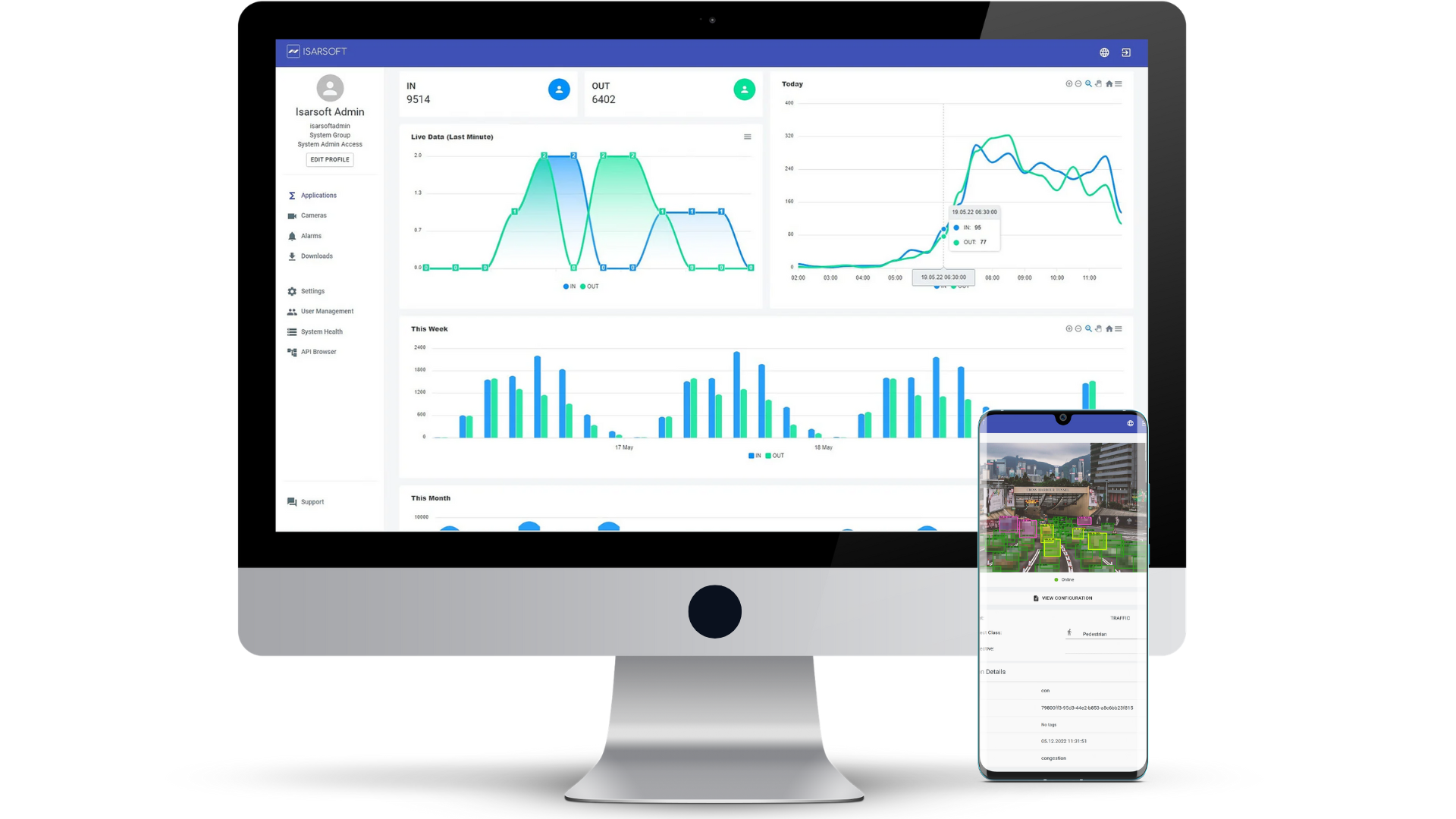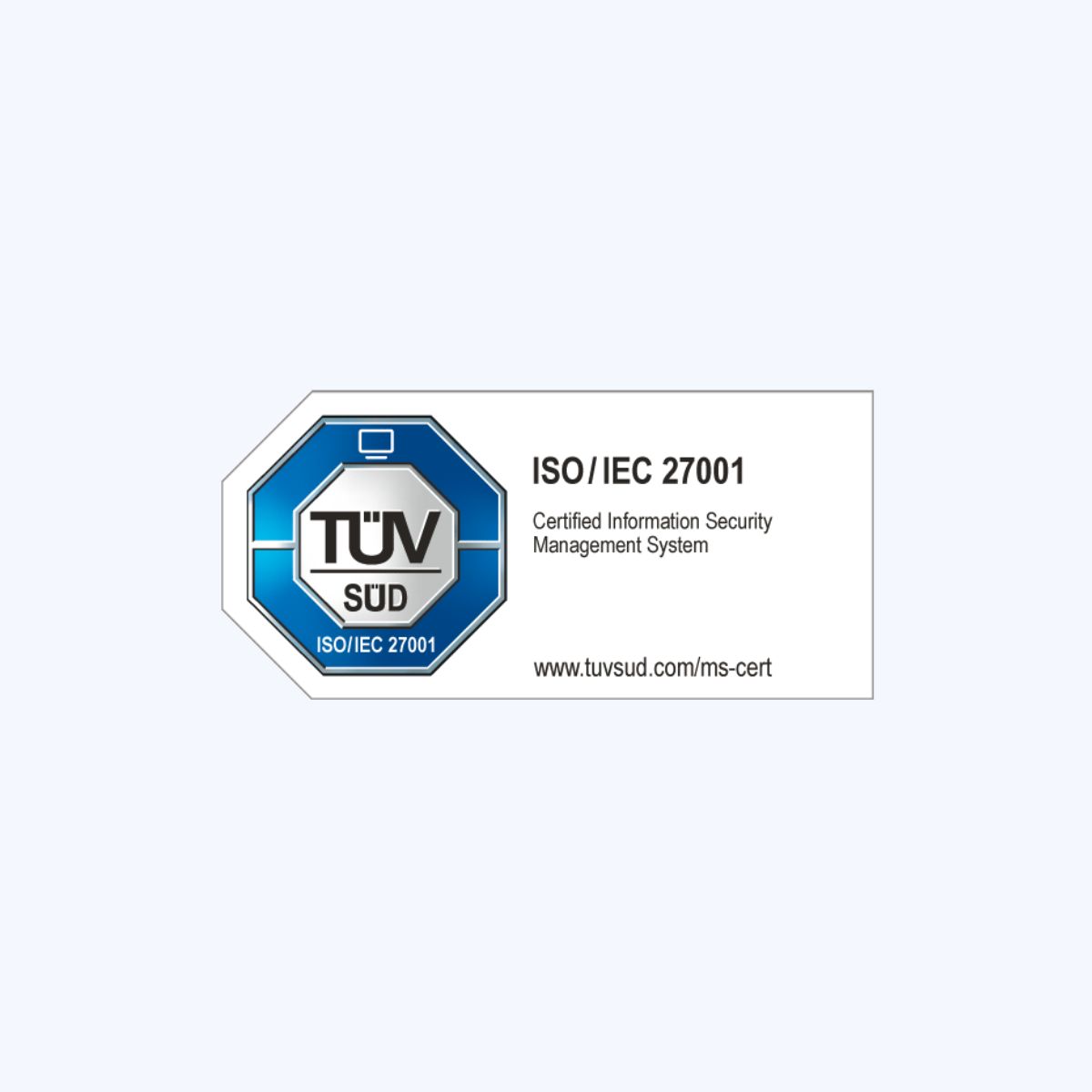AI in the Healthcare Industry
Artificial Intelligence (AI) is revolutionizing the healthcare industry, and in more ways than one. This article is a deep-dive into the uses and application areas of AI in the medical ecosystem and how it is altering patient care, diagnostics, and drug discovery.
Published
October 31, 2023

Introduction
The Importance of Medical Management
Medical management refers to the process of managing medical services in a way that makes access to healthcare easy, effective, and seamless. Medical management encompasses a lot of aspects in the healthcare industry - diagnostics, patient care, drug discovery, medical imaging, remote support, and inventory management. There are a number of benefits to efficient medical management. Some of the most important ones are as follows:
- Enhanced Patient Care - Efficient healthcare systems result in improved outcomes for patient care, in addition to boosting accessibility. Patients receive timely care, waiting times undergo a reduction, and the margin for error is minimized.
- Leveraging Data Analytics - The right kind of health management generates a lot of useful data. if studied, this data reveals valuable insights into improving the quality of healthcare, how to make it more affordable and accessible, which processes can be reinforced, how resources can be conserved, etc. The use of advanced analytics enables healthcare professionals to create an order of data-driven decision making, perform predictive analysis, and make deeper forays into the realm of medical research.
- Cost-effective Resource Allocation - Effective medical management contributes significantly to smooth allocation of resources such as staff, medical supplies and equipment, and electricity. Clinics and hospitals are then better able to treat patients and minimize utility bills and waste.
.jpg)
AI in the context of Healthcare
Artificial Intelligence (AI) is an applied function of computer science, with the primary objective of replicating human intelligence and logical reasoning in machines. This is done to aid operational processes and accuracy.
The healthcare industry offers a vast scope of application for AI to be implemented. Take, for example, an inventory management system that is regulated by AI. This does not just lead to greater efficiency in the context of time and resources, but can also be used to identify and detect theft, unauthorized access, and loss.
Medical professionals can make use of AI to regulate present operations and lay a foundation for future advancement.
AI-based Solutions for Healthcare
Natural Language Processing (NLP)
Natural Language Processing (NLP) is a way of using AI to process and transcribe unstructured medical text so as to unearth insights. By implementing a widespread use of NLP in the medical sector, analyzing medical records and clinical notes can be simplified.
NLP can be utilized to leverage an understanding and consequent utilization of patient histories. Relevant for diagnosis and risk assessment, individual care can be optimized to give way to better patient outcomes. NLP can also be used to streamline medical record management, as well as maintain more comprehensive admin information.
Predictive Analysis
Predictive analysis is a huge part of healthcare, specifically in the area of preventative medicine and care. AI-based predictive analysis can be used to predict outbreaks of disease, patient admission rates in case of viral epidemics, individual patient diagnoses, and to streamline the flow of supply and demand.
The entire objective behind being able to foresee a certain occurrence is to ensure that medical help (medicines, essential medical and sanitary supplies, staff support) can be given out freely, and adequately. Having access to this information can help hospitals and healthcare providers allocate resources efficiently and effectively.
Remote Monitoring & Care
AI enables healthcare providers to remotely monitor the health of patients. This is particularly useful in cases where the patient needs to be monitored continuously, so that his or her vital signs can be assessed. Remote monitoring omits the possibility of neglect or oversight and guarantees that patients are taken care of well.
Remote monitoring, also often categorized under the moniker of telemedicine, bears especial relevance in post-operative care and cases of chronic illness.
Robotic Surgery
Robotic surgery refers to a surgical process that most often features a combination of human and robotic involvement. This form of surgery is enabled by AI, and is increasingly a common choice for complicated procedures.
.jpg)
There are several benefits to robotic surgery. Complicated surgeries usually need to be very cautiously regulated - even the slightest error could have dire consequences for the patient. It is, therefore, absolutely imperative that the possibility of error be minimized as much as possible. AI-enabled robotic surgery achieves just that and is linked to considerable improvement in surgical outcomes.
Individual Health Assessments
AI-driven operations have the potential to make healthcare far more accurate for every patient. A common problem in the industry is that healthcare professionals are often overworked, given that the provider to patient ratio is so skewed. Given that most hospitals and medicinal centers tend to be understaffed in relation to the demand they experience, AI can be used to fill in the gap.
AI is used to create tailor-made treatment plans, based on an analysis of the patient's medical history, their preferences, and budgetary requirements. A 'one-size-fits-all' approach can be discarded in favor of more attentive medical care.
Drug Discovery & Development
The process to discovering and developing a drug is a time-consuming affair. It requires conducting several data-based surveys to assess pertaining factors such as dose, target groups, potential side effects, affordability, etc. This is followed by an analysis of these vast datasets - a task that considerably raises the amount of time and money required to launch a new drug in the market.
This is where AI comes in. With the help of AI, voluminous datasets can be analyzed with relative ease, in addition to generated visual indicators that simplify comprehension. Potential drug candidates can be identified more quickly, and success rates predicted with greater accuracy.
The schematic display below is an overview of the different solutions discussed so far.

How does Video Analytics Enhance Patient Care?
Slip Detection
Slip detection is a video analytics-enabled process wherein patients can be monitored, and their safety guaranteed. It is impossible to keep eyes on every single patient, at all times, which is why camera systems are a fixture in hospitals. Video analytics further simplifies patient care, by enabling video data to be processed and analysed consistently.
When, for example, a patient slips and falls, the video analytics system will detect the accident. A condition can be preset to trigger an alarm in this situation, whereby timely action can be taken. Video analytics can help hospital personnel discard the need for constant surveillance of patients, while guaranteeing high standards of safety.

Queue Management
A Queue Management System (QMS) is a system to automatically manage queues whilst monitoring and optimizing people or vehicle flow.
A QMS measures the length of the queue and estimates the dwell or waiting time. Through digital signs and displays people can be guided to free slots or obtain information about the estimated waiting time. Some QMS include ticketing or queue number systems to aid the processing and monitoring. QMS without ticketing or queue number systems typically rely on sensors, video analytics or employee oversight to assess queue length.
QMS can be integrated with other systems such as appointment scheduling, customer feedback, and data analytics to provide insights and metrics to optimize their operations and improve the customer experience.
QMS are frequently deployed in:
- Airports at security checkpoints
- Hospitals
- Government agencies
- Fast food restaurants and drive ins
- Retail checkouts
In the context of hospitals and dispensaries, queue management is essential for the smooth functioning of day-to-day activities. These places tend to receive a high volume of customers on a daily basis, and are very service-oriented. What is more important is that they fall under the bracket of 'essential services', which makes proper organization important.
Security and Perimeter Protection
Perimeter protection refers to a security strategy that involves securing the boundary or perimeter of a physical location to prevent unauthorized access or intrusion. It is a crucial aspect of security systems for facilities such as commercial and industrial buildings, data centers, airports, and other critical infrastructure.
Video management systems are implemented in hospitals, focusing specifically on the perimeter and at points of entry and exit. This is done to prevent access for external intruders, as well as to protect patients and staff residing inside.
Video Tutorial
The video above visualizes Isarsoft Perception conducting queue management, while also identifying and detecting the people in it. Privacy masks are automatically applied to a detected person, while lines and zones can be created to aid efficient measurement.
Future Trends and Innovations
AI is a fast-growing field, and is touted to acquire increasing importance in the coming years. In the healthcare sector, specifically, there are a number of advancements that are expected to develop within the next decade.
AI Education and Training
The ideal approach to AI adoption is always a judicious mix of human involvement and machine-powered automation. The healthcare sector is no exception to the rule. One of the things that is crucial for a seamless adoption process is implementing systems that facilitate human-machine interactions, while also allowing for professionals to be trained in the use of AI.
AI education is likely to become more common, with AI tools being made easily accessible during medical training. The same goes for purchasing necessary equipment in hospitals and medical centers, and enhancing the learning experience for personnel.
Another major aspect of AI education lies in the sphere of encouraging confidence regarding AI-powered processes in patients.
Genomics
Genomics is a branch of science that involves the study of genes and genetic markers to enable a better understanding of how genetics influence health, longevity, BMI, susceptibility to diseases, etc. Genomics play a huge role in improving general and personalized medicine and finds application in a variety of areas, such as - understanding of genetic variation, hereditary disease identification, treatment, and prevention, forensic science, cancer genomics, and pharmacogenomics.
Ai-enhanced genomic research has the potential to revolutionize healthcare, by parsing through genetic markers in individual patient histories and using those insights to create tailor-made healthcare approaches.
Drug Repurposing
Public healthcare is influenced primarily by the existing processes of drug discovery and development. They are usually time and cost-intensive, even with adequate funding and manpower. AI bears the power to speed up the processes by simplifying clinical trials and dataset analyses.
In addition, AI can also be used to repurpose existing drugs for a wider scope of application. Repurposed drugs can be used to treat a larger number of ailments, and have an accelerating effect on treatment development in a broad sense.
More about Isarsoft
With Isarsoft Perception, your camera systems become part of your business intelligence. Whether the goal is to increase efficiency, customer satisfaction or safety, Isarsoft Perception provides the insights needed for informed decisions.

Contact us, to learn more about how to turn security cameras into intelligent sensors.



